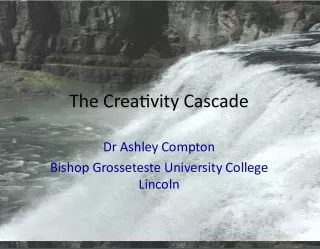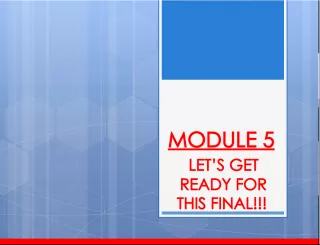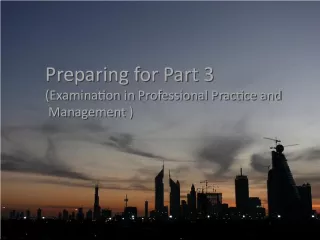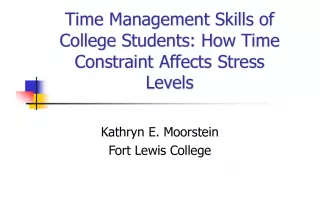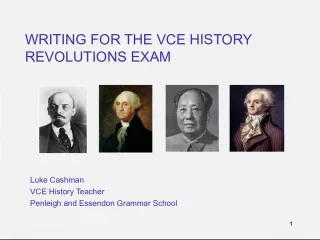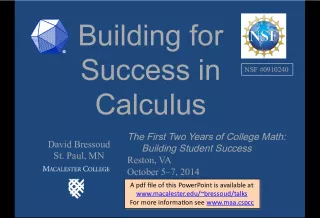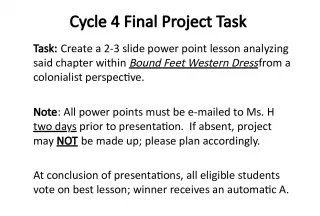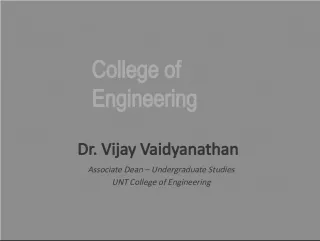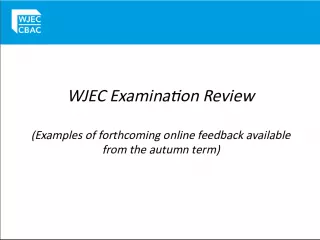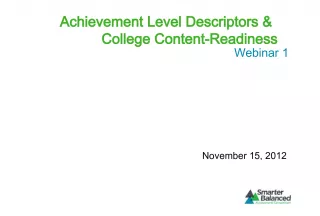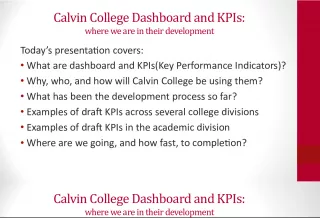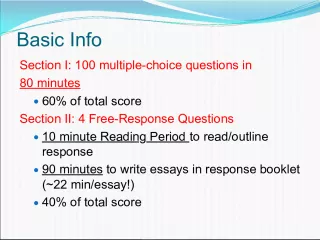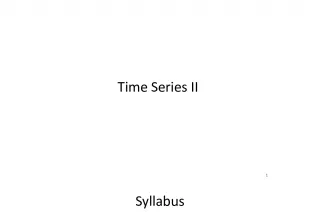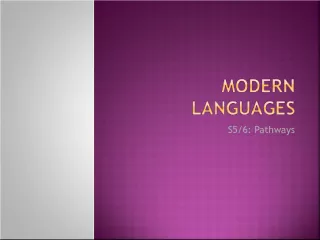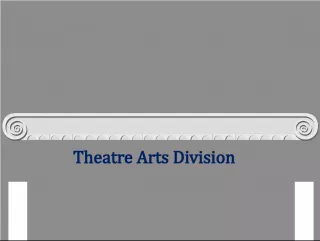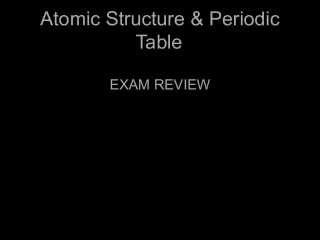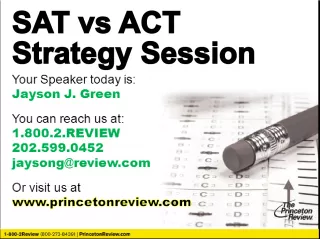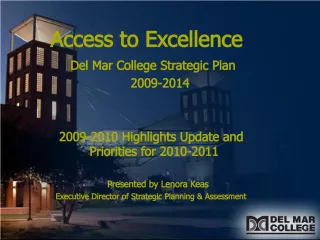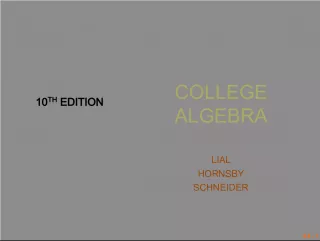"The Importance of the ACT Exam for College-Bound Students"
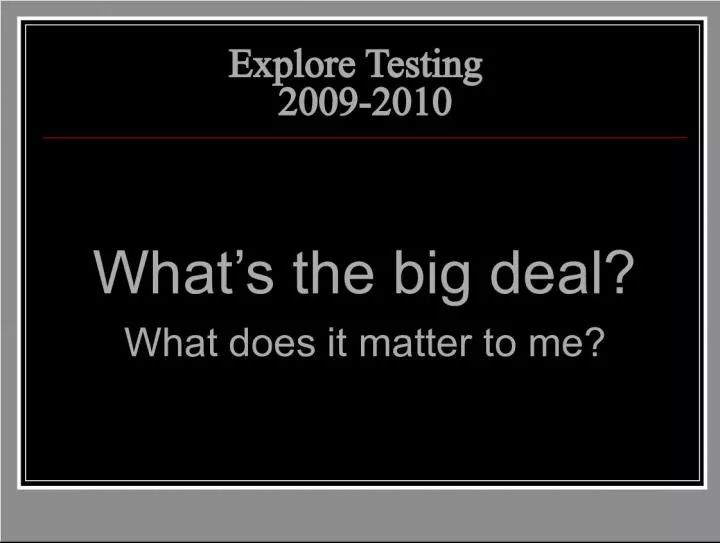

This presentation, titled "Explore Testing 2009-2010", aims to educate high school students about the relevance of ACT scores for college admission. The first slide
- Uploaded on | 4 Views
-
 polyan
polyan
About "The Importance of the ACT Exam for College-Bound Students"
PowerPoint presentation about '"The Importance of the ACT Exam for College-Bound Students"'. This presentation describes the topic on This presentation, titled "Explore Testing 2009-2010", aims to educate high school students about the relevance of ACT scores for college admission. The first slide. The key topics included in this slideshow are . Download this presentation absolutely free.
Presentation Transcript
Slide1Explore Testing2009-2010 What’s the big deal? What does it matter to me?
Slide2We know that youwant to attend a university! Did you know that an ACT score is important to your future?
Slide3So…what’s the ACT? The ACT is a national exam that students across the United States take every year. It tells colleges how well you are prepared in English, math, reading and science.
Slide4English and Reading?What’s the difference? English Test measures standard written English—punctuation, grammar and usage, and sentence structure (Usage/Mechanics) your understanding of the use of strategy, organization, and style in writing (Rhetorical Skills).
Slide5Reading Test Measures… Your ability to understand written material from different school subjects. Details in the passage, drawing conclusions, and making comparisons and generalizations. Just like the CRT tests!!!!! Big…long…reading passages!!!!
Slide6What does the science portion test? Scientific reasoning skills and your ability to understand scientific information and draw conclusions from it (not science facts!) Graphs, tables, and charts Research summaries (descriptions of several related experiments) Conflicting viewpoints (two or more hypotheses that are inconsistent with one another).
Slide7Science Topics Covered Includes: life sciences Earth/space sciences (geology, astronomy, and meteorology) physical sciences (chemistry, physics)
Slide8What does the Math portion cover? Questions on the test cover four areas pre-algebra, elementary algebra, geometry, and statistics and probability It’s all about thinking…not memorizing formulas! Critical thinking based questions!
Slide9The Explore is a“Practice” for the ACT! Take the information seriously….you could end up with thousands of dollars in scholarships when you graduate from high school.
Slide10What Does Your Score Mean? Your scores are between 1 (the lowest score you can receive) and 25 (the highest score you can receive)
Slide11 • HOME • THE TEST • YOUR SCORES • YOUR FUTURE Your Scores • What Do My Scores Mean? • How Do They Compare? • Am I on Track? • How Can I Improve? What Do My Scores Mean? Your scores are between 1 (the lowest score you can receive) and 25 (the highest score you can receive) even though you answered a lot more than 25 questions on the EXPLORE test! Your Composite Score is simply the average of your test scores in English, Mathematics, Reading, and Science (rounded to a whole number). The two scores directly under English tell you how well you did in these two areas of English: • Usage/Mechanics —punctuation, grammar and usage, and sentence structure • Rhetorical Skills —your understanding of the use of strategy, organization, and style in writing These scores only range from 1 to 12. Added together they do NOT necessarily equal your English Test score. Corporate Home | Contact ACT | Site Index © 2009 by ACT, Inc. Terms of Use and Privacy Policy . Look Here!!!!
Slide12Composite ScoreIt’s just the average of your test scores in English, Math, Reading and Science
Slide13How Do Your Scores Compare? Percent of Students Scoring At or Below Your Score
Slide14Do you have a weak area?It’s ok if you do…you can fix it! Take the classes that will help you get that score up!!!! The Explore (or ACT) do not measure your intelligence. These tests measure what you have done! How can you apply what you know?
Slide15These are the minimum scores recommended to beready for college based on all the research….will you be ready?
Slide16It’s up to you! Take the courses that will prepare you to have choices… Choice of colleges Choice of majors Choice of careers
Slide17Where can I find all this information? School website! (Multiple places!!!!) www.deercreekschools.org Click on Curriculum…Secondary Link www.deercreekms.org Click on Curriculum
Slide18What kind of ACT Score do I need to getadmitted to the college of my choice? 2009 Examples…36 is the highest! Minimum scores… Most students are on the high end of the range… If it’s 30-34 most students are 34 who are admitted 2 Year College (No Minimum ACT) OCCC, OSU-OKC Regional Universities 20 (like East Central, Southwestern) OSU and OU 24 Harvard 31-34 Yale 29-34 UCLA 25-30 Duke 30-34 MIT 30-36 (5% of students can get in with a 25 or higher with strong Resumes at some selective schools…)
Slide19So…you want a perfect 36!That means.. You want a 25 on the Explore… 24 on the ACT…then you want a 17 on the Explore (top 30%)
Slide20It’s Up To You! Be sure that you have the choices that you want in 4 more years! It starts now… In 12 th Grade you can’t go back and take all of the tough courses that you missed! CHALLENGE YOURSELF!!!!!
